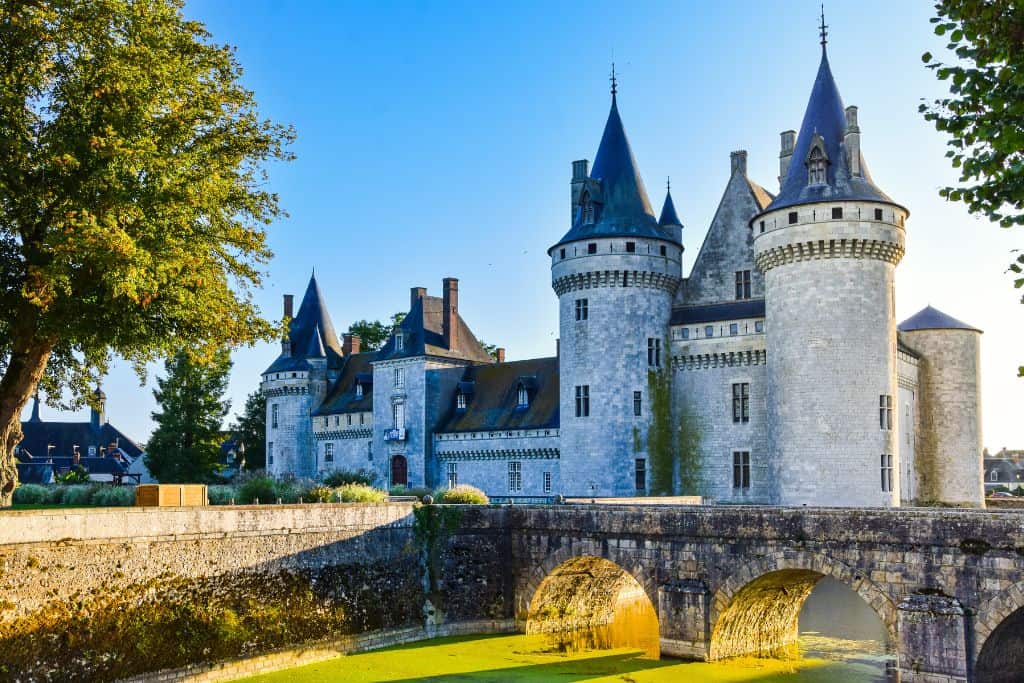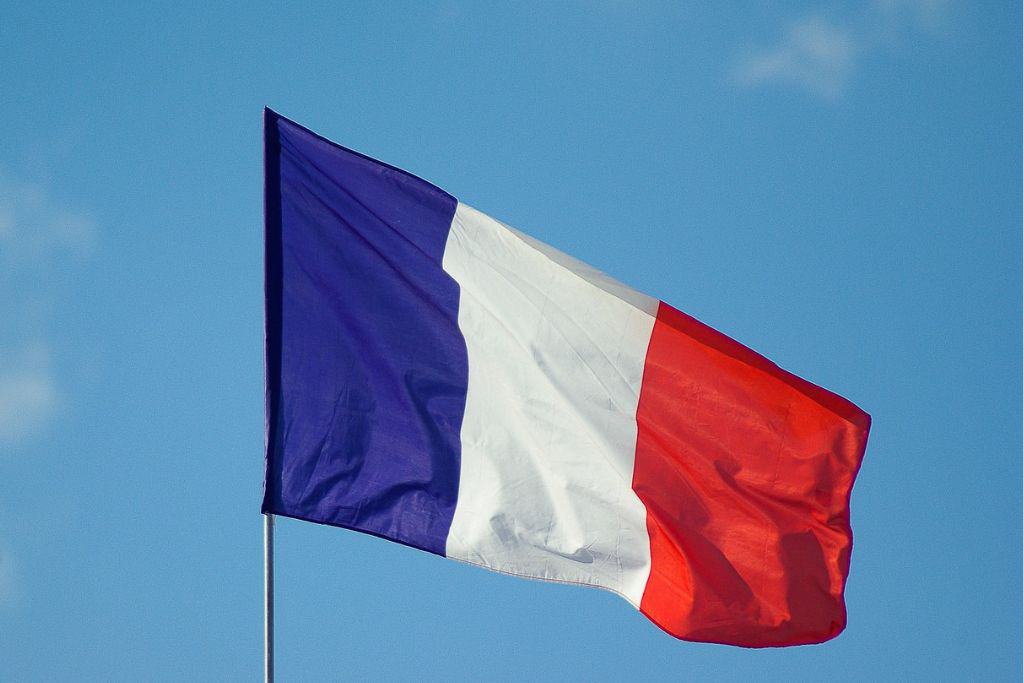
- Country Profile
- Student Life
- Education
- Requirements
- Costs
- FAQs
- prev
- next
Intro
About Study in France

France is a popular destination for over 430,000 international students each year, known for its top universities and rich history. From its Celtic and Roman roots, France grew into a strong kingdom under the Franks. The French Revolution in 1789 led to big changes, creating the First Republic and shaping ideas of democracy that influenced many nations. Cities like Paris, Lyon, Toulouse, and Bordeaux are favorite spots for international students. These cities offer vibrant student life, cultural diversity, and world-class universities. French is the official language, spoken by over 300 million people worldwide, but many universities also offer courses in English, making it easier for international students to study. France also offers student visas, healthcare, and housing support to help students feel at home. Located in Western Europe and a member of the European Union, France is a perfect place for exploring Europe while enjoying its history, culture, and top-tier education.
Why do International Students Study in France?

- World-Class Education: France provides a top-quality education known for its strong standards. The country’s universities and schools focus on both learning and real-world skills, helping students succeed in their careers. With a mix of modern teaching and practical experience, studying in France prepares students to excel on a global level.
- Rich Culture and Language Learning: Studying in France offers a unique opportunity to immerse oneself in a culture famed for its art, history, and cuisine. Whether you’re studying in Paris, Lyon, or smaller cities, the lifestyle is vibrant and full of learning opportunities beyond the classroom. The country’s deep cultural heritage also allows students to explore everything from world-class museums to beautiful landscapes. Additionally, learning the French language can greatly enhance your career prospects, as French is one of the most spoken languages globally.
- Strong Career Prospects: France is home to global companies like LVMH, Airbus, and L’Oréal, offering ample career opportunities for students after graduation. Internships and work-study programs are also common, allowing students to gain practical experience during their studies. This blend of education and industry ensures that students are well-prepared for an international career.
- Supportive Environment for International Students: France’s commitment to supporting international students is evident in its student services and vibrant campus life. Major cities like Paris are ranked among the best student cities, with a thriving social scene, public transportation, and affordable cost of housing options. The healthcare system is reliable and ensures students are well cared for during their stay.
Job Opportunities for International Students in France
International students in France have opportunities to work after graduation through the temporary resident permit (Autorisation Provisoire de Séjour, APS). This permit allows graduates to stay in France for up to 12 months to seek employment related to their studies. If they find a job, they can transition to a work visa. Graduates in fields like science, technology, engineering, and mathematics (STEM) may also have access to additional opportunities.
Part-time Jobs for International Students in France
France allows international students to work up to 964 hours annually, offering opportunities to manage living expenses and gain financial assistance during their studies. While universities may provide some on-campus positions, most students who study in France find part-time jobs independently through online platforms or networking. Common roles include hospitality and retail jobs, tutoring, babysitting, and freelancing. Having French language skills is often an advantage and can open up a wider range of opportunities.
Experience the Beauty of French Culture

French culture is famous for its art, cuisine, fashion, and philosophy. Renowned for iconic landmarks, France is a hub of history and intellectual thought. French cuisine is a world-class blend of regional dishes and sophisticated flavors, while fashion is synonymous with elegance and innovation. Additionally, the country's rich literary and philosophical traditions have influenced global thinking. Living in France offers international students a chance to immerse themselves in these unique cultural experiences, enriching both their academic and personal growth.
Student Life in France
Student life in France offers a unique blend of academics, social activities, and cultural immersion, making it an exciting experience for anyone who chooses to study in France. Universities provide a vibrant environment with numerous clubs, events, and student organizations. Students can enjoy a mix of historical exploration, outdoor activities, and a strong focus on personal development. Living in France also allows students to experience the country's diverse regions, and engage in both French and international student communities.
The Weather and Climate in France
France's climate is generally mild but varies across four distinct climate zones, each offering unique weather patterns. Here's a breakdown:
- Oceanic Climate (West France): Frequent rainfall spreads across the year, and mild temperature variations occur throughout the seasons.
- Continental Climate (Central and Eastern France): Harsh winters, warm and often hot summers, and distinct seasonal changes.
- Mediterranean Climate (Southeastern France): Hot, dry summers; mild, rainy periods from October to April; abundant sunshine year-round.
- Mountain Climate (High Altitudes Above 600-800 Meters): Heavy rainfall, snow coverage for 3-6 months annually, cool temperatures even in summer.
Tips for International Students Before Studying in France

- Learn Basic French: Even if your program is in English, knowing conversational French can make everyday life easier and help you integrate better into the community.
- Research Accommodation Early: Housing can be competitive, especially in cities like Paris. Consider applying for CROUS student residences, which are affordable and popular among international students who choose to study in France.
- Understand the Visa Process: Start your visa application early. You’ll need proof of enrollment, financial means, and insurance. Keep all original documents ready for your visa interview.
- Open a French Bank Account: Having a local bank account is essential for managing expenses, and paying rent. Look for student-friendly options with low fees.
- Register for Health Insurance: non-European students must register for French health insurance (Sécurité Sociale) upon arrival.
- Familiarize Yourself with French Etiquette: Respect cultural norms, such as saying “bonjour” before starting a conversation and being punctual for appointments or classes.
- Take Advantage of Student Discounts: Keep your student ID handy to enjoy discounts on transportation, museums, cinemas, and even some restaurants.
- Understand Transportation Options: France has an excellent public transportation system. Consider buying a monthly or annual student pass for the metro, bus, or train.
- Budget Smartly: While tuition fees may be affordable, living costs can add up. Plan for rent, groceries, transportation, and leisure activities. Utilize student cafeterias like CROUS for budget meals.
- Prepare for Independent Learning: French educational institutions encourage self-study and critical thinking. Be ready for less structured teaching methods compared to other education systems.
- Join Student Networks: Engage with international student groups to make friends, find support, and navigate the challenges of studying in a new country.
Video
Location
-
France
Facts About France
Location
- France is located in Western Europe, bordered by eight countries(Belgium, Luxembourg, Germany, Switzerland, Italy, Monaco, Spain, and Andorra)
Time Zone
- France operates on UTC+1 (CET) in standard time and UTC+2 (CEST) during daylight saving time, from late March to late October.
Population
- As of 2025, France’s population stands at approximately 66.6 million
Languages
- The official language: is French
Capital
- Paris (The largest city in France)
Currency
- Euro (€)
Student Life in France

Student life in France is an enriching blend of academics, culture, and social interaction, making it a popular destination for international students. French universities offer a dynamic learning environment, where students benefit from a mix of large lectures and intimate group work. In cities like Paris, Lyon, and Toulouse, students are immersed in a vibrant cultural scene, enjoying art, history, and social traditions such as the popular "apéro" gatherings. With a wide range of student associations, extracurricular activities, and networking opportunities, there are plenty of ways to meet new people and integrate into French society. Additionally, the affordable public transport system and the opportunity to explore outdoor activities, from hiking in the Alps to visiting coastal towns, enhance the student experience. As a result, student life in France offers not only a high-quality education but also the chance to experience one of Europe’s most culturally rich and diverse countries.
Healthcare Coverage for Non-EU/EEA Students
Non-European students studying in France are required to register with the French social security system. This registration is free and can be completed online after enrollment at a recognized French educational institution. Once registered, you will receive a provisional social security number and later a Carte Vitale, the official health insurance card, granting access to medical services. The system typically reimburses up to 60% of medical costs, including doctor visits, prescriptions, and hospital stays. To cover the remaining expenses, it’s advisable to obtain complementary insurance (mutuelle).
French Cuisine

French cuisine is celebrated for its rich diversity, time-honored traditions, and exceptional flavors. Meals in France are seen as an art form, with careful attention to ingredients, preparation, and presentation. Iconic dishes like Coq au Vin, a tender chicken slow-cooked in a savory broth, and Bouillabaisse, a hearty fish stew from Provence, showcase the mastery of French cooking in creating deep, complex flavors from fresh, local produce. The country's pastries and desserts are also famed worldwide, with Crème Brûlée, a smooth custard topped with a crispy caramelized layer, and Mousse au Chocolat, a creamy chocolate mousse, being particular favorites. France is also home to a vast array of cheeses, from creamy Brie to sharp Roquefort, each offering a distinct taste tied to its region of origin. French dining often includes a cheese course and light appetizers like Escargots à la Bourguignonne (snails in garlic butter), providing an authentic taste of the country's culinary heritage. Whether enjoyed in bustling cities or quiet villages, French cuisine is about much more than food—it's about celebrating culture, creativity, and shared moments
Driving in France for Foreign Students
As an international student in France, you are not required to exchange your foreign driver's license if you hold a student residence permit. You can continue driving with your non-European license throughout your studies in France, as long as it fulfills specific conditions. Your license must remain valid, issued by the country where you had your usual residence before arriving in France, and either be in French or accompanied by an official translation into French. This regulation allows you to drive legally without the need for additional documentation or conversion of your license during your studies
French economy

France ranks seventh globally in nominal GDP and ninth in purchasing power parity (PPP), contributing approximately 4% to the world’s total economic output. It has a highly diversified economy, with major sectors including aerospace, luxury goods, manufacturing, agriculture, and energy. France is a leading exporter, particularly in machinery, aircraft, and high-end goods. The service sector, especially tourism, plays a crucial role in its economy.
The Ways to Travel Around France
Transportation in France is both diverse and efficient, offering a variety of options for getting around the country. Whether you're navigating the bustling streets of Paris, exploring charming small towns, or traveling between cities, France's transportation network makes it easy and convenient. From the world-renowned high-speed TGV trains to the extensive metro systems, regional buses, and even cycling paths, there are numerous ways to explore the country. In addition to public transport, options like taxis, car rentals, and even ferries provide flexibility and accessibility.
Submit an Inquiry
The Education System in France

The French education system is renowned for its structured approach and high academic standards, offering a comprehensive path from early childhood education to higher learning. It is divided into several stages, starting with preschool for young children, followed by primary and secondary education, and ending in higher education.
Primary School
In France, children often begin preschool at age 3, with some starting as early as 2. The early years of preschool focus on socialization and foundational skills, such as basic math concepts, language development, and letter recognition. As children advance, the curriculum becomes more structured, introducing reading, writing, and arithmetic in preparation for elementary education. Preschools may operate independently, especially in urban areas, or be linked to elementary schools in smaller communities. The elementary school follows preschool and lasts for five years, during which students build on their literacy and numeracy skills while exploring subjects like science, the arts, and French. Classes are usually led by one or two teachers responsible for delivering the entire curriculum.
Secondary Education
Secondary education in France is divided into two stages:
- Middle School: From 11 to 14
- High School: From 15 to 18
Higher education

The French higher education system is diverse, offering various pathways through universities, prestigious Grandes Écoles, and specialized institutions that focus on fields like art, design, and technology.
The system is structured into three main study levels:
-
-
-
Bachelor's Degree (Licence): The bachelor's degree is the first level of higher education. It provides foundational knowledge in various fields and is required for admission to graduate programs.
-
Master's Degree (Master): the Master's degree allows students to specialize in a specific area of study. It is essential for those aiming for advanced career positions or doctoral studies.
-
Doctorate (Doctorat): The highest level of education in France, after completing a Master's degree. Students must produce original research, culminating in a dissertation, to earn a Doctorate.
-
-
École Ducasse
École Ducasse is a well-known school that trains students in cooking, pastry making, and hospitality. The school offers programs designed to help students learn the skills needed to lead in the food industry. With a focus on hands-on experience, students get to work in professional kitchens, learning both classic and modern techniques. The school also connects students with industry professionals, giving them opportunities for internships and real-world experience, so they’re ready for careers in restaurants, bakeries, or even starting their own businesses.
KEDGE Business School
KEDGE Business School is a hub of innovation and global business education. It combines academic excellence with practical experience to prepare students for the dynamic demands of international markets.
Why Choose KEDGE?
-
-
- Diverse programs in management, marketing, finance, and more.
- Hands-on learning through internships, global exchanges, and industry partnerships.
- A focus on sustainability, leadership, and innovation to shape future business leaders.
-
academic year in France
The academic schedule in France typically begins in September or October and ends in May or June, with summer break starting in late June or early July. The year is divided into two semesters: the first runs from September to December or early January, and the second from January to May or June.
Submit an Inquiry
Entry Requirements in France for International Students

If you're planning to study in France, it's important to understand the application process and requirements. From choosing a program to submitting documents, this guide will walk you through the key steps you need to take to apply to universities in France and prepare for your studies abroad.
Application Process
- Choose a Program: Research available courses and check eligibility.
- Prepare Documents: Gather required documents like academic records, language proficiency proof, and a motivational letter.
- Submit Application: Complete the online application and pay any required fees.
- Wait for Admission: Wait for the university's decision on your application.
- Apply for a Student Visa: Once accepted, apply for a student visa with the necessary documents.
- Finalize Arrangements: Organize travel, accommodation, and other pre-arrival details.
Required Documents Needed to Apply for University in France

- Campus France approval.
- Academic Transcripts: Provide transcripts from previous qualifications, including high school or undergraduate records, as evidence of your education qualifications.
- Passport-sized Photos: Standard-sized photos (35mm x 45mm) are needed for your application, visa, and student ID.
- Language requirements: Depending on the program, you may need to show proficiency in French (e.g., DELF/DALF) or English (e.g., TOEFL/IELTS).
- Passport Copy: A valid passport for identification and visa purposes.
- Curriculum Vitae (CV): Detailing your academic background, work experience, and any relevant skills.
- Motivation Letter: A statement explaining why you wish to study in France, what your academic goals are, and why you chose the specific program.
- Financial Proof: Evidence that you can support your studies and living expenses, such as bank statements or a scholarship letter.
Student Visa: Everything You Need to Know about French Visa

If you're planning to study in France, securing the right student visa is a crucial step. Whether you're enrolling in a degree program, a language course, or a short-term exchange, understanding the different types of student visas and their requirements will help ensure a smooth application process. This guide covers everything you need to know about the student visa options, processing times, and required documents for the student visa.
Types of Student Visas for France
France offers different types of student visas depending on the length and nature of your studies:
- Long-Stay Visa for Studies (VLS-TS): This visa is for students who plan to stay in France for more than 3 months. It's the most common type of student visa for degree programs and language courses.
- Short-Stay Visa for Studies: This is for students enrolled in courses lasting less than 3 months (such as summer programs or short-term exchange programs).
Visa Processing Time
The processing time for a French student visa typically ranges between 2 weeks to 6 weeks, depending on the type of visa and where you apply. It is advisable to apply well in advance to avoid any potential delays.
Documents Required
When applying for a student visa to France, you’ll typically need the following documents:
- A valid passport.
- A recent passport-size photo.
- Proof of admission from a recognized French institution.
- Evidence of financial support (bank statement, scholarship award, etc.).
- Health insurance coverage.
- Proof of accommodation (or a letter of guarantee from the institution).
- A completed visa application form.
- Visa application fee payment.
Submit an Inquiry
Study Costs in France

Living in France as a student combines quality with affordability, offering a lifestyle that suits a variety of budgets. From reasonable tuition fees to discounted transport passes and affordable dining options, managing expenses in France is surprisingly easy. With smart planning, students can enjoy a vibrant culture, world-class education, and everyday comforts without overspending. Let’s explore the cost of living in France in detail.
Accommodation Costs:
- In Paris: University residences cost around €400/month, private student residences range from €600 to €1,200/month, private apartments start at €800/month, and shared apartments typically begin at €500/month.
- Outside Paris: University-managed housing costs between €200 and €400/month, private student residences start at €400/month, private apartments begin at €400/month, and shared apartments are available from €300/month.
Tuition Fees:
-
- The average minimum tuition fees for programs in France are around €15,000 per year. This fee may vary depending on the institution and program.
Utilities:
-
- Electricity, gas, and internet: Approximately €60.
- Shared internet: Around €25.
Study Materials:
-
- Books and resources: €50 to €100.
Transportation:
-
- Monthly public transport passes): Around €30 for students.
- Petrol: €1.6 per liter.
- Discounted youth railcards: €50 per year.
- Bicycle rentals (e.g., Vélib system): Cost-effective options available.
Food Expenses:
-
- Groceries: Approximately €250.
- Restaurant meal: Around €12.
Other Activities:
-
- Cinema tickets: €9.
- Gym memberships: €37.
- Event entry fees: €15.
Submit and Inquiry
FAQS
Q: What are the top universities in France known for their academic excellence?
A: Renowned institutions like École Ducasse, known for culinary and hospitality programs, and KEDGE Business School, specializing in business and entrepreneurship, offer exceptional educational opportunities and highlight France's commitment to academic excellence.
Q: Can international students work while studying in France?
A: Yes, students can work part-time up to 964 hours annually. Common jobs include tutoring, hospitality, and internships, offering valuable experience and financial support.
Q: What is the climate like in France?
A: France’s climate varies:
Oceanic (West): Mild, frequent rain.
Continental (Central/East): Cold winters, warm summers.
Mediterranean (Southeast): Hot, dry summers.
Mountain (High altitudes): Heavy snow, cool summers.
Q: What tips can help international students prepare to study in France?
A:
Learn basic French for easier communication.
Secure accommodation early, especially in cities like Paris.
Open a French bank account for easier financial management.
Understand the visa process and keep all required documents ready.
Q: What are the language requirements for studying in France?
A: You may need to demonstrate proficiency in French (e.g., DELF/DALF) or English (e.g., TOEFL/IELTS), depending on the program.
Q: Is healthcare required for international students in France?
A: Yes, international students in France must register with the French social security system, which covers part of medical costs. It's recommended to get complementary insurance (mutuelle) to cover the remaining expenses.
Q: Do I need to speak French to study in France?
A: Not necessarily. Many universities offer programs in English, but knowledge of French can enhance your experience and help with daily life.
Q: Are there opportunities for international students to network in France?
A: Yes, many universities have student clubs, international student associations, and networking events to help you connect with peers.
Q: Is France safe for international students?
A: France is generally safe, but students should take some precautions, especially in larger cities.
Q: Can I work while studying in France?
A: Yes, international students can work up to 21 hours per week during the academic year and full-time during holidays.
Q: Do I need a student visa to study in France?
A: Yes, most international students need a student visa. The type of visa depends on the length of your program:
- Short-stay visa: For programs under 3 months.
- Long-stay visa (VLS-TS): For programs over 6 months, which also acts as a residence permit.


